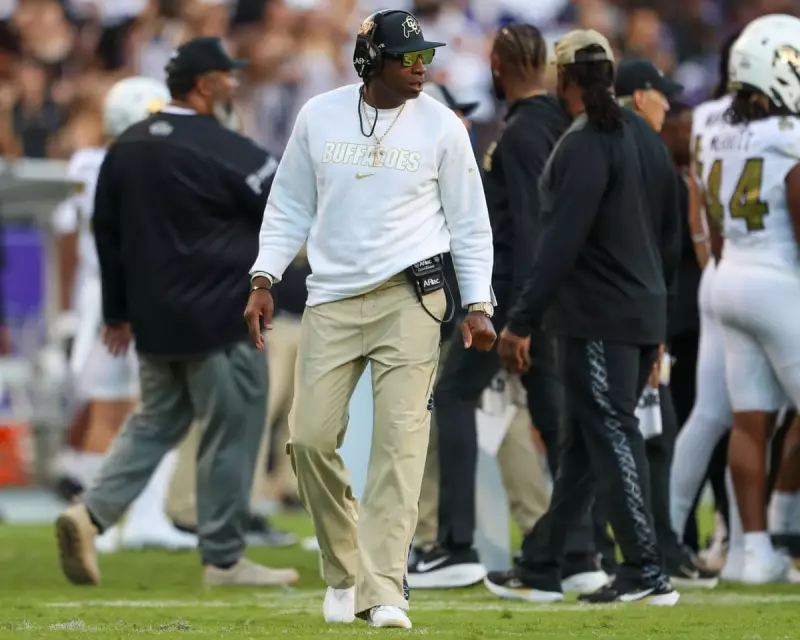
University of Colorado head coach Deion Sanders has sent shockwaves through the college football world by revealing he fears developing more blood clots after experiencing excruciating pain during his team's recent defeat.
'Hurting Like Crazy': Coach's Health Crisis
The legendary NFL Hall of Famer turned coach disclosed that he was "hurting like crazy" throughout Colorado's loss, raising serious concerns about his long-term health and ability to continue coaching. Sanders, who has faced significant health challenges in recent years, including a previous battle with blood clots that resulted in multiple surgeries and the amputation of two toes, now faces renewed medical worries.
Previous Health Battles Resurface
Sanders' health journey has been nothing short of dramatic. His previous blood clot issues led to extensive medical treatment and life-altering consequences. The coach's revelation that these concerns have resurfaced during game-time pressure highlights the physical toll coaching at this level can take, even on elite athletes turned mentors.
Colorado's Struggles Compound Health Concerns
The health disclosure comes amid a challenging season for the Colorado Buffaloes, adding another layer of complexity to Sanders' coaching tenure. The team's performance struggles combined with their coach's health issues create an uncertain future for the programme that captured national attention when Sanders took over.
What This Means for Colorado Football
The situation raises critical questions about:
- Coach Sanders' ability to continue leading the team effectively
- The long-term impact on Colorado's football programme
- Player morale and performance amid health concerns about their leader
- The physical demands of coaching at elite collegiate levels
Medical Experts Weigh In on Risks
While Sanders hasn't provided specific details about his current medical status, his history of blood clots combined with high-stress coaching environments presents legitimate health concerns. Medical professionals note that previous blood clot incidents significantly increase future risks, particularly under physically demanding circumstances.
The coaching legend's openness about his health struggles sheds light on the often-overlooked physical challenges faced by coaches in high-pressure sports environments. As Sanders continues to navigate both team performance and personal health concerns, the college football community watches with bated breath, hoping for positive outcomes on both fronts.
This developing story represents more than just sports news—it's a stark reminder of the human element behind the headlines and the physical sacrifices made by those in leadership positions within competitive athletics.




